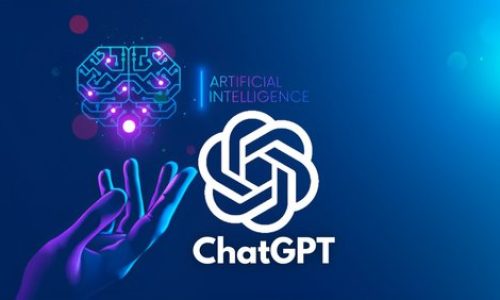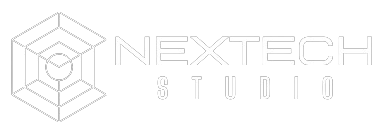
Artificial Intelligence (AI) is no longer a futuristic concept; it’s a present-day reality transforming numerous industries, including healthcare. With its ability to analyze massive amounts of data, predict outcomes, and even perform complex tasks, AI is proving to be a game-changer in the medical field. But how exactly is AI revolutionizing healthcare? In this article, we’ll explore the various ways AI is making an impact and what it means for patients, doctors, and the healthcare system as a whole.
AI in Diagnostics
One of the most significant contributions of AI to healthcare is in diagnostics. Traditional diagnostic methods can be time-consuming and subject to human error. AI algorithms, however, can analyze medical images, lab results, and patient history with remarkable speed and accuracy.
Improving Accuracy
AI-powered tools can detect diseases like cancer at early stages by analyzing medical images more accurately than human radiologists. For instance, Google’s DeepMind has developed an AI system that can detect over 50 eye diseases from retinal scans with high accuracy. This early detection is crucial for successful treatment and improved patient outcomes.
Personalized Treatment Plans
AI can also help in creating personalized treatment plans. By analyzing a patient’s genetic information, lifestyle, and medical history, AI can recommend treatments tailored to the individual’s unique needs. This personalized approach increases the chances of successful treatment and reduces the risk of adverse effects.
AI in Surgery
AI is making its way into the operating room as well. Robotic-assisted surgery, powered by AI, is enhancing the precision and efficiency of surgical procedures.
Enhanced Precision
Robotic systems like the Da Vinci Surgical System use AI to assist surgeons in performing complex procedures with greater precision. These systems can filter out hand tremors and provide a magnified view of the surgical site, reducing the risk of complications and improving patient recovery times.
Minimally Invasive Procedures
AI-driven robots are also enabling minimally invasive surgeries. These procedures result in smaller incisions, less pain, and faster recovery for patients. Surgeons can now perform intricate operations with the assistance of AI, making procedures that were once considered risky more manageable and safer.
AI in Drug Discovery
The process of discovering new drugs is lengthy and expensive. AI is streamlining this process by predicting how different compounds will interact with targets in the human body.
Accelerating Research
AI algorithms can analyze vast datasets of chemical compounds and their effects on various diseases, identifying potential drug candidates much faster than traditional methods. This acceleration in research can bring life-saving medications to market more quickly, benefiting patients worldwide.
Reducing Costs
By identifying the most promising drug candidates early in the research process, AI can significantly reduce the costs associated with drug development. Pharmaceutical companies can allocate resources more efficiently, ultimately lowering the price of new medications for patients.
AI in Patient Care
AI is also transforming patient care by providing virtual assistants, remote monitoring, and predictive analytics.
Virtual Health Assistants
AI-powered virtual assistants, such as chatbots and voice assistants, are helping patients manage their health. These assistants can answer medical questions, schedule appointments, and provide medication reminders, making healthcare more accessible and convenient.
Remote Monitoring
AI-driven remote monitoring devices can track patients’ vital signs and alert healthcare providers to any concerning changes. This continuous monitoring is particularly beneficial for managing chronic conditions like diabetes and heart disease, allowing for timely interventions and reducing hospital admissions.
Predictive Analytics
Predictive analytics powered by AI can identify patients at risk of developing certain conditions, allowing for early intervention and preventive care. For example, AI can analyze electronic health records to predict which patients are likely to develop complications after surgery, enabling doctors to take proactive measures.
FAQs
1. How does AI improve diagnostic accuracy?
AI improves diagnostic accuracy by analyzing medical images and patient data with advanced algorithms, detecting diseases like cancer at early stages more accurately than traditional methods.
2. Can AI replace doctors?
No, AI is not meant to replace doctors. Instead, it acts as a tool to assist healthcare professionals in making more accurate diagnoses, creating personalized treatment plans, and performing surgeries with greater precision.
3. How is AI used in drug discovery?
AI accelerates drug discovery by analyzing vast datasets to identify potential drug candidates, predicting their interactions with targets in the human body, and reducing research costs.
4. What are the benefits of AI in surgery?
AI enhances surgical precision, enables minimally invasive procedures, and reduces complications and recovery times by assisting surgeons with robotic systems.
5. How does AI help in patient care?
AI helps in patient care through virtual health assistants, remote monitoring devices, and predictive analytics, making healthcare more accessible, efficient, and proactive.
Conclusion
AI is undeniably revolutionizing healthcare by enhancing diagnostic accuracy, improving surgical precision, accelerating drug discovery, and transforming patient care. As AI technology continues to advance, its impact on the healthcare industry will only grow, leading to better patient outcomes and a more efficient healthcare system. Embracing these advancements can pave the way for a healthier future, where AI and human expertise work hand in hand to provide the best possible care.
For more insights on the latest in web design, digital marketing, and SEO, visit our homepage, web designing services, digital marketing services, and our blog.
External Links:
- DeepMind’s Eye Disease Detection
- Da Vinci Surgical System
- AI in Drug Discovery
- Virtual Health Assistants
- Remote Monitoring in Healthcare
By leveraging AI, the healthcare industry can continue to innovate and improve, ultimately leading to a more efficient, effective, and patient-centric system.




